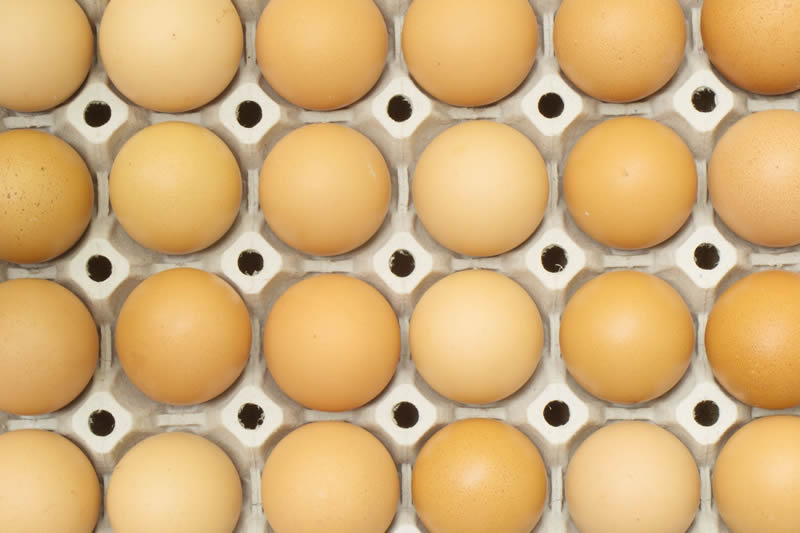
Government inspectors have taken action following reports that a Polish trader has been offering unmarked eggs for sale on the United Kingdom market.
Selling unmarked shell eggs is illegal under European Union law. Offering eggs for sale without the required markings raises serious questions about both the place of origin of the eggs and the way in which they were produced, and UK authorities have responded to the reports by formally contacting their counterparts in Brussels and Warsaw.
A spokesman for the UK Animal Health and Veterinary Laboratories Agency (AHVLA), the organisation responsible for policing the egg marking rules in this country, confirmed to the Ranger that it had taken action. “AHVLA has been made aware of a Polish trader allegedly offering unmarked eggs in Great Britain,” he said. “Government officials have made both the Polish authorities and the EU Commission aware of these allegations.”
The spokesman said, “AHVLA takes all allegations of breaches of the Eggs and Chicks Regulations seriously and all are investigated to ensure that only good quality and salmonella free eggs are marketed in Great Britain.”
The Eggs and Chicks Regulations require all grade A eggs sold through retail outlets and public markets within the European Union to be marked with a code identifying country of origin, the laying unit where the egg was produced and the type of unit in which the egg was produced. Enriched cage eggs are marked with the number 3, barn eggs carry the figure 2, free range eggs 1 and organic eggs are identified with a 0. All the information must be marked on the shell.
The marks on egg shells are intended to help egg marketing inspectors identify the place of origin of any eggs sold at retail in the UK and throughout other states in the European Union, and are one means of preventing illegally produced eggs getting onto the retail market. Roger Gent, chairman of the British Free Range Egg Producers’ Association (BFREPA) told the Ranger that if eggs were being offered for sale unmarked then there was nothing to show that the eggs were not produced in illegal battery cage units, which were banned under European Union law on January 1 2012. Although the ban came into force at the beginning of 2012, battery eggs continued to be produced in a number of EU states after the deadline and the European Commission is taking legal action against some countries for failing to comply with the ban. Egg industry leaders in the United Kingdom have been concerned that illegal eggs from these countries could find their way into this country.
Roger Gent said, “If there are no marks on them, how do we know they are not battery eggs? Everything must be fully traceable. We need to be able to check the sites that these eggs are coming from.” He said he was concerned that unmarked eggs were being offered for sale.
Egg marketing inspectors are employed by the AHVLA, an executive agency working on behalf of the Department for Environment, Food & Rural Affairs (Defra), the Scottish Government and the Welsh Government. The agency was formed in 2011 through the merger of Animal Health and the Veterinary Laboratories Agency.
In addition to policing the egg marketing rules, the AHVLA is also responsible for the prevention and control of animal disease on farms, at markets and other livestock-related premises, as well as advising politicians on animal health and welfare issues. The AHVLA also acts as the national, European and international reference laboratory for several exotic and zoonotic notifiable diseases, and is responsible for protecting endangered species through wildlife registration and licensing.
Roger Gent said he was pleased to see that the AHVLA had acted following reports of unmarked egg being offered for sale. “First of all selling unmarked eggs is illegal, so it has to be stopped,” he said. “We must know the country of origin and we must know how the eggs are produced. Egg producers in this country work to very high standards. We don’t want to stop eggs being imported, but if they are going to be imported they must be legal and they must have been produced to the same standards we are operating under here in the UK,” said Roger.
He said that in this country it was quite clear how eggs were produced. The eggs were marked with a code and consumers could use the information to choose whether to buy free range, barn or cage eggs. If eggs were going to come in from abroad then the same information had to be available so that consumers knew what they were buying. “There has to be complete traceability,” he said.
The British Egg Industry Council (BEIC) also responded to reports about the Polish eggs. A spokesman said, “We are aware of the rumours about unmarked Polish eggs being available for sale. If the allegations are true, it is absolutely disgraceful and the BEIC totally condemns it. We fully support any prosecution of UK producers, egg processors, foodservice operators or retailers being found to import or use eggs not produced or marked in accordance with relevant legislation.”
The BEIC campaigned vigorously in the run-up to the introduction of the EU’s ban on battery cages for tight controls to police the new regulations. It warned that many European producers would fail to comply with the rules and it urged action to prevent illegal eggs entering the UK market. The BEIC has urged retailers, processors, caterers and food manufacturers to buy only British eggs to ensure that eggs are safe and that they comply with the law.
